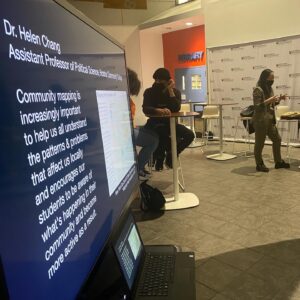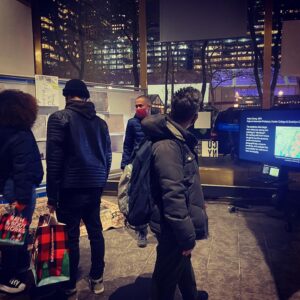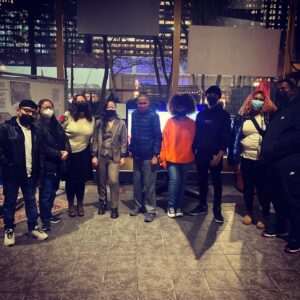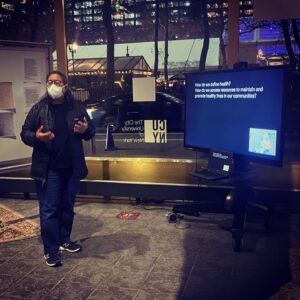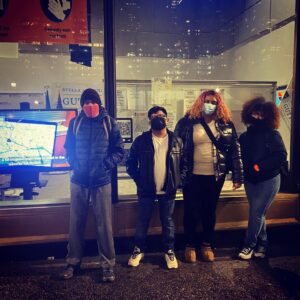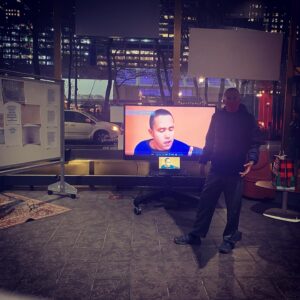Organized by Kimberley D. McKinson (John Jay College of Criminal Justice), Tatiana Nuñez (Graduate Center and City College) Micheal Rumore (Baruch College) and Stefanie Wess (Lehman College, Hunter College and Queensborough Community College).
(Re)Mapping Knowledge is a student-faculty collaborative podcast project that showcases the creative scholarship of CUNY students and also serves as a critical pedagogical tool for the wider CUNY community. Featuring the creative scholarship and storytelling of CUNY undergraduate students, this four-episode podcast series highlights innovative and radical pedagogical approaches as well as the possibilities that emerge from incorporating student-produced and student-centered knowledge in the classroom.
Drawing on the writing and research of student-scholars, episodes 1-3 of the project highlight different pedagogical approaches to (re)mapping knowledge in the classroom. Episode 1 interrogates the relationship between self, community, language, and textuality. Episode 2 discusses classroom strategies for confronting the coloniality of literary traditions. Episode 3 uses student autoethnography to center embodied knowledge as decolonial pedagogy. Episode 4 of the project features a moderated conversation between the three Faculty Fellows on the themes, teaching tools, and strategies illuminated in Episodes 1-3. In this way, Episode 4 not only serves to frame Episodes 1-3 but also serves as an accompanying teaching tool in its own right, including a discussion of innovative approaches to teaching and reading canonical texts.
(Re)Mapping Knowledge provides CUNY students and teachers the opportunity to problematize the notion of the canon and also allow for meditations on the radical ways in which knowledge can be produced by students in the classroom. The episodes capture student scholarship in a rich way. As a pedagogical tool, (Re)Mapping Knowledge provides an example of how faculty can embrace podcasts as a means by which to embrace different sensorial teaching tools that can complement more traditional written texts.



